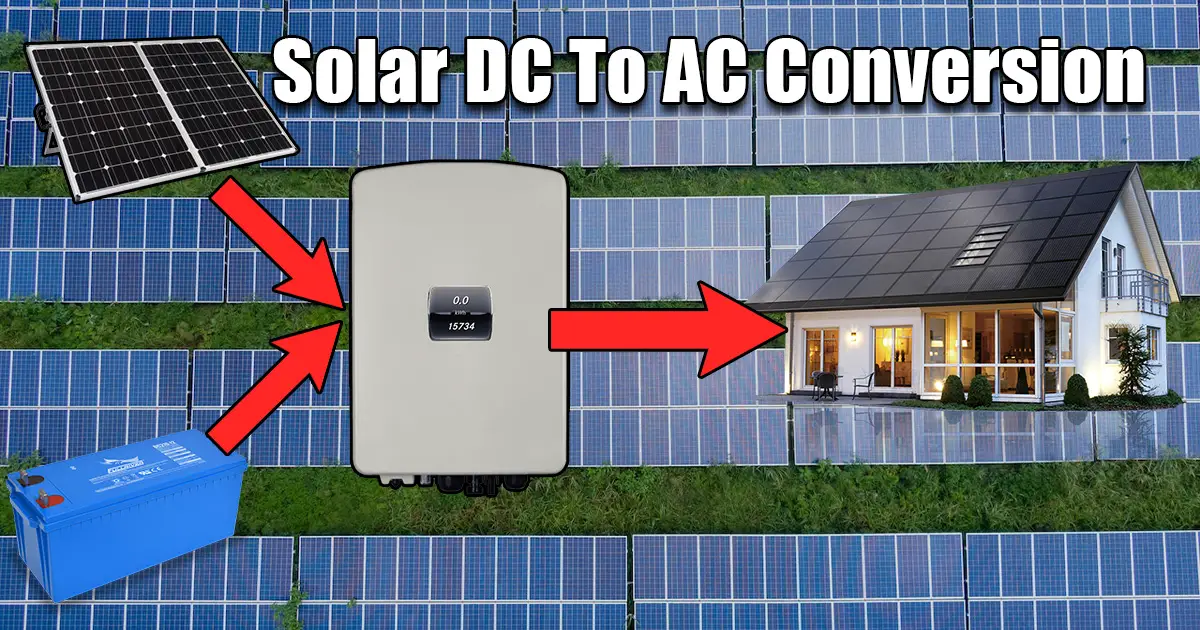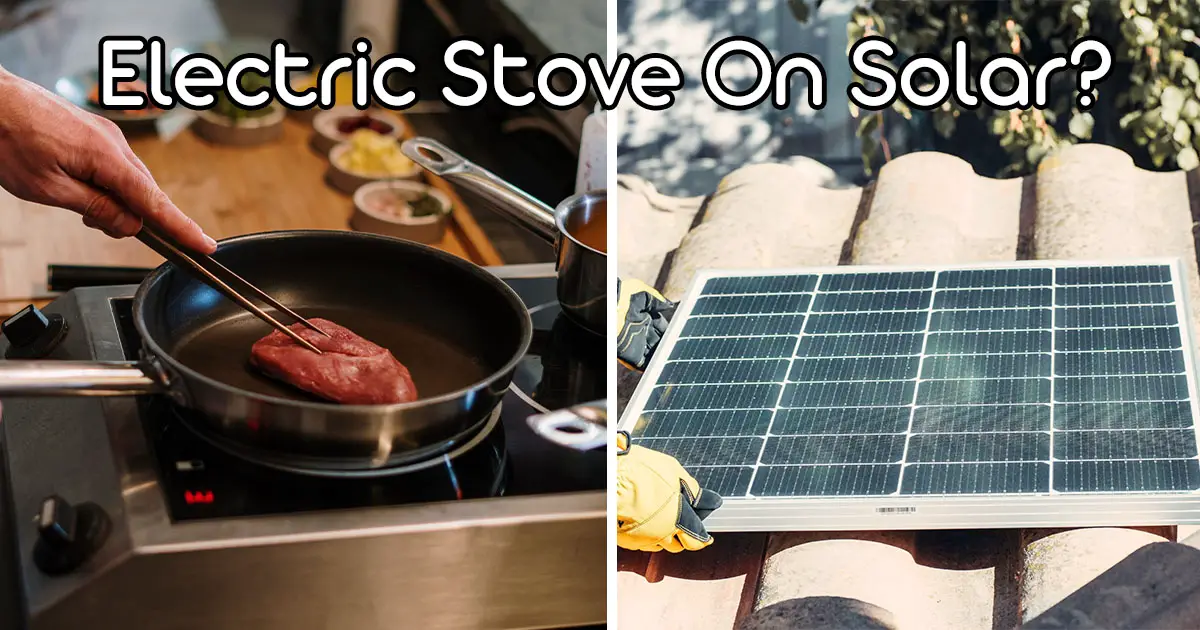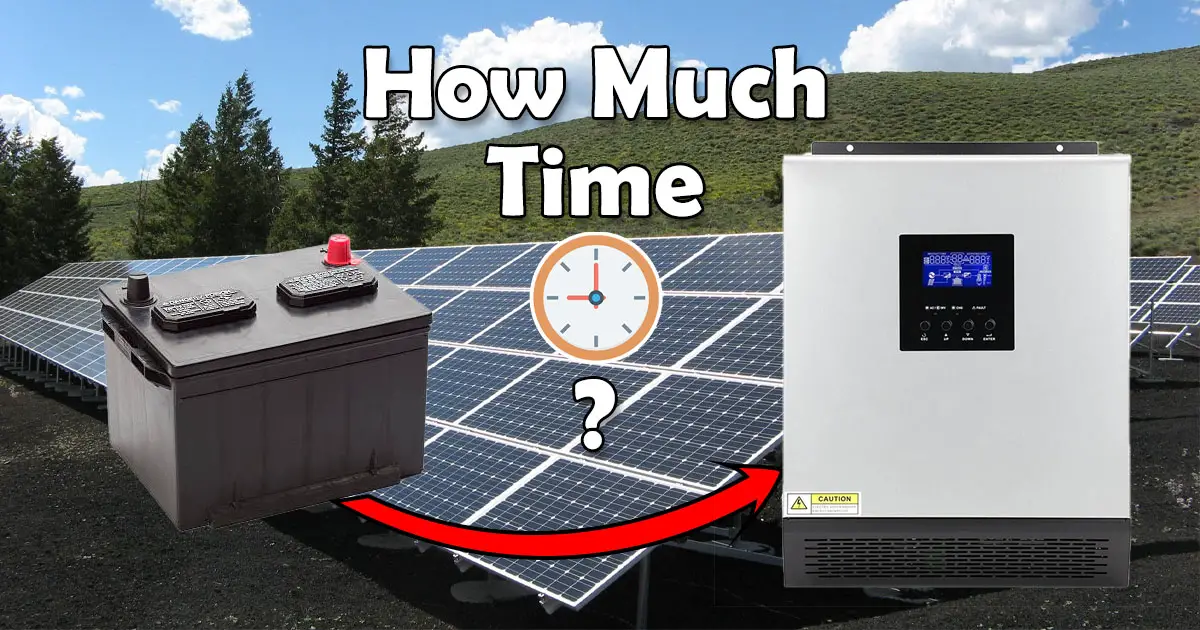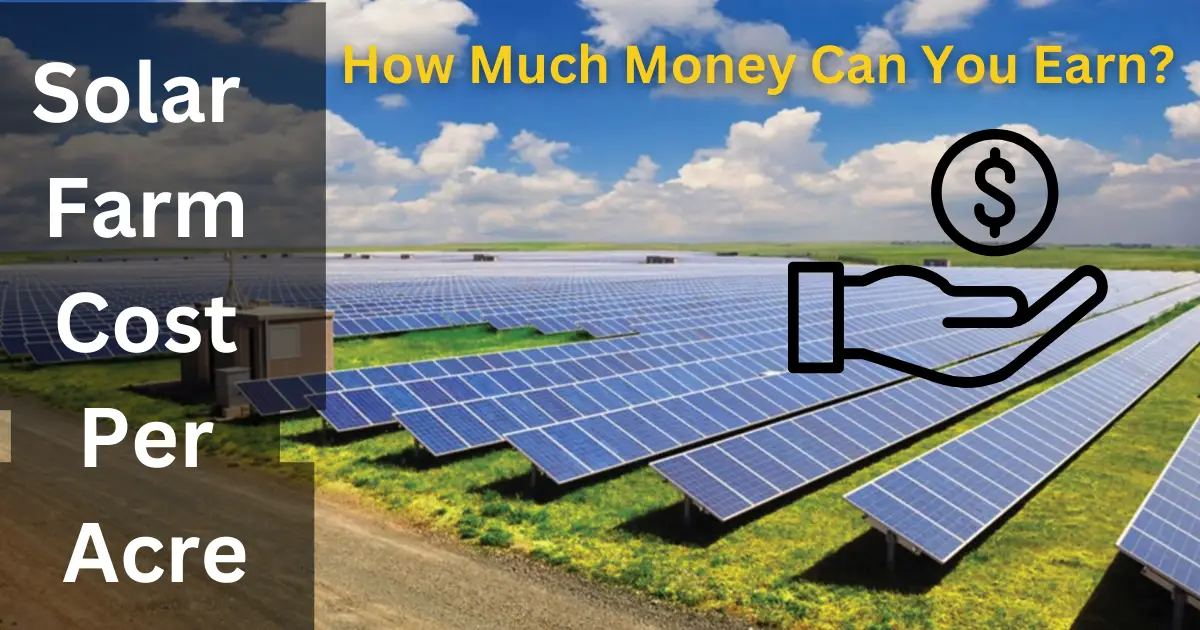A solar panel is an efficient tool for running multiple home appliances but have you ever wondered what can 400-watt solar panel can run? Well, A 400-Watt solar panel can run your favorite appliances without costing much.
What Can 400-Watt Solar Panels Run? Modern electronic gadgets, including computers, game consoles, televisions, laptops, fans, printers, and much more, may be readily powered by a single 400-watt solar panel. If you want to get innovative, a solar panel with 400 watts of power can even run an average-sized recreational vehicle on a camping vacation or a small-sized refrigerator.
In this post, we will find out if a 400-watt solar panel is the best option for your home, whether or not you can afford it, what can 400-watt solar panel run, including its specifications, and much more.
Let’s dig right into the article!
Should I Need a 400-watt Solar Panel?
Before coming to the main point, one should know whether they need a 400-watt solar panel. The short answer to this question is Yes. It is one of the most affordable and efficient sized solar panels one can ever use.
There has been a dramatic increase in clean and efficient energy resources as the world becomes more reliant on renewable energy sources. Solar panels have swiftly become the go-to because they are advantageous in multiple ways: cheap, easy to install, provide renewable energy, and much more.
However, not every solar panel is the same. Understanding the wattage capacity of solar panels is crucial. How much power a solar panel can generate in a particular time is directly proportional to its wattage. This has ramifications for both the size and expense of the system.
“Panels With A Higher Wattage Will Cost More But Generate More Power As Well.“
You would be glad to know there is a happy medium between price and performance with 400-watt solar panels for most households. They’re not small enough to be cost-prohibitive but not too massive to be a pain to install, either. So, we can say one should give a shot at the 400-watt solar panel at least once.
What Is A 400-Watt Solar Panel?
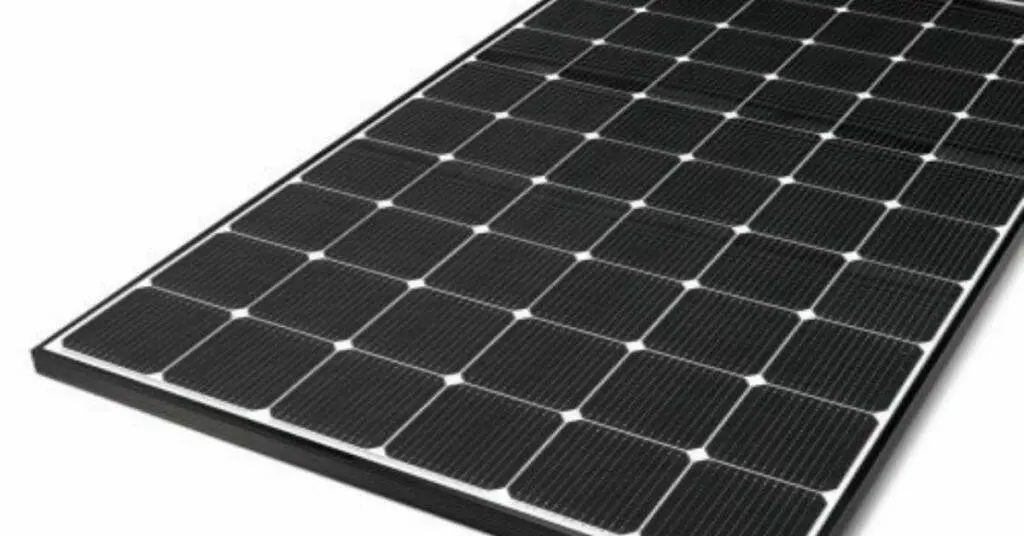
Photosynthetic cells are what make up a solar panel. These cells convert solar energy into usable power(electricity). When solar cells absorb enough sunlight, an electric field may charge inverters that ultimately run electronic devices.
Solar panels come in various varieties – from the little panels used to power calculators and watches to the massive arrays needed to generate power for a home or office.
There has been a gradual shrinking in the size of consumer solar panels over the past three decades as the underlying technology for solar panels and microinverter efficiency has improved.
Panels with a power output of 400 watts are in the middle of the solar energy spectrum; they can provide enough energy to run most modest appliances and devices without the hefty price tag of larger, industrial-scale arrays.
Types of Solar Panels
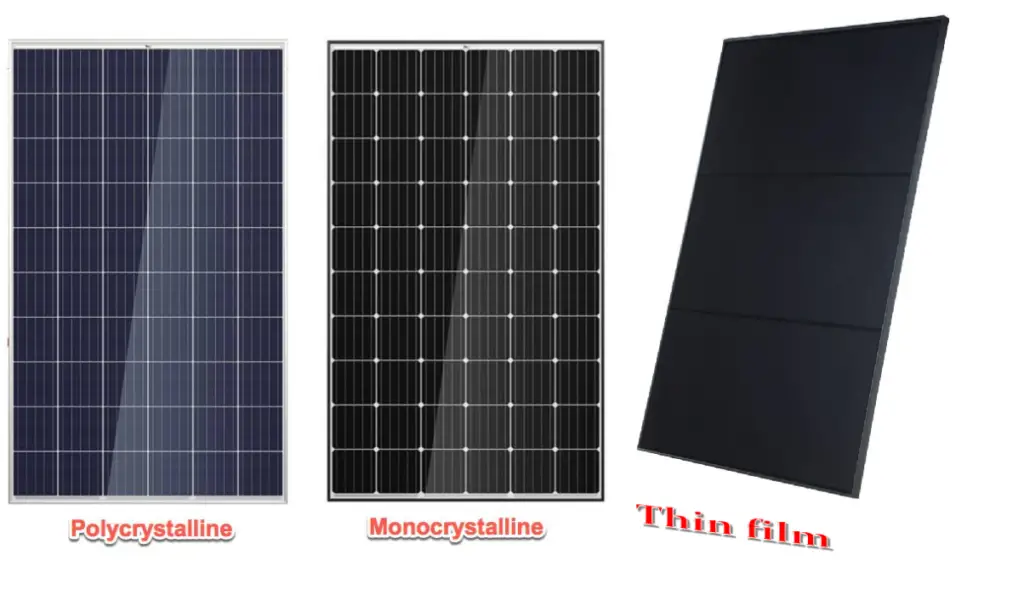
Solar panels are divided into three categories based on their functionalities and voltages. These three categories are listed below.
- Monocrystalline
On the market, they are by far the most popular options. They have a greater voltage output (16 volts or more) than other varieties because they are created using a more polished method of producing silicon wafers.
- Slender/Thin Film
They have no silicon and a relatively low voltage of 12 volts, so they are the cheapest and budget-friendly option.
- Polycrystalline
These use pure silicon in construction, and their output voltage typically falls between 13.5 and 14.5 volts.
Now that you have three kinds of solar panels, you may pick and choose from these several solar panel options. Thin film solar panels are an excellent alternative to monocrystalline panels if you don’t require very high voltage and don’t need to generate too much electricity (400 watts).
However, monocrystalline panels are the best option for 400-watt solar panels.
Which Appliances Can 400-Watt Solar Panels Run?
A 400-watt solar panel provides more than enough energy to run most common household appliances. These household appliances can be your television, PC, fans, slow cookers, air fryers, and other similar appliances. With little creativity, a solar panel with a capacity of 400 watts might provide enough energy to run a typical small fridge with having 120Ah battery.
Single 400-watt solar panels seem to be around average in terms of power output. However, larger appliances that use a lot of electricity, such as dishwashers, washing machines, dryers, and microwaves, can cause issues.
A 400-watt panel can be installed alone, although it will be part of a more extensive system in most cases. If you have many 400-watt panels, you should be able to power large appliances with electricity.
Remember that the quantity of energy generated by a solar panel depends on several variables, such as the panel’s size, the angle at which it is tilted, and the surrounding environmental conditions. Putting your solar panel in a spot where it will get enough sunlight can help it function at peak efficiency.
It’s also important to remember that using many electrical devices simultaneously can significantly reduce battery life, including air conditioners and freezers. As long as your computer has the Energy Star logo, you may use it to power it up as well.
400-watt Solar Panel (Specifications)
Although there are defined parameters by which all solar panels are measured, it can be challenging to wade through all the numbers and acronyms. We’ve narrowed it down to the most practical options, so picking a 400W solar panel can be a piece of cake for you.
Here are some of the essential details about solar panels:
| 400-Watt Specs | Details | 400-Watt Specs | Details | ||
| 1 | Maximum power (Pmax) | 400 watts | 7 | Efficiency Rating | 20% – 21% |
| 2 | Short circuit current (ISC) | 10.33 amps | 8 | Frame | Anodized Aluminum |
| 3 | Open circuit voltage (Voc) | 48.6 volts | 9 | Dimensions | 78.7” × 39.1” × 1.38” |
| 4 | Cell type | Monocrystalline | 10 | Weight | ~ 22.6KG (49.6 lbs) |
| 5 | No. of solar cells in a panel | 60 | 11 | Size | 39 inches by 21.5 inches |
| 6 | Power output capacity | 400 watts | 12 | Price | US-$310 |
Solar panels come in various sizes and shapes, depending on the manufacturer. They may be placed on a roof or other surface using standard hardware, making them accessible to even the most inexperienced person who wants to DIY it while installing.
Note: Keep in mind that not all 400-watt solar panels will look exactly like the table one does, some will be a little bigger or smaller, and some could even weigh a little more or a little less, but this table should give you a rough idea of what to anticipate when you start installing them.
What Is The Cost Of A 400-Watt Solar Panel?
The cost of a solar panel with a 400-watt output varies depending on the manufacturer. The following factors determine the whole price tag:
- Module construction quality.
- The type of panel (monocrystalline, thin film, polycrystalline).
- Whether you’re interested in purchasing a whole set or a single component, buying only the panel instead of a complete system with a battery, charge controller, and inverter can result in considerable savings.
A 400-watt solar panel now costs about US-$310; however, this may vary depending on where you live.
While this may seem high initially, remember that solar panels are an investment that will eventually pay for itself and provide significant environmental advantages. A 400-watt solar panel will pay for itself in energy savings in around three years.
We advise you to learn the typical price range and cost of energy consumption in your area before making a purchase.
How Much Power Can You Expect From a 400-Watt Solar Panel, And For How Long?
A solar panel with a 400-watt output will typically generate between 1 and 2 kilowatt-hours (kWh) of electricity daily.
Still, the following variables will affect the precise quantity of energy you can produce:
- Current weather patterns in your state
- Total daylight hours in your region
- Panels that have dirt and dust on them.
Example: So, a 400-watt solar panel might provide 400 W * 5 hours = 2,000 wh of energy in a day in Texas, where the peak sun hours are 5.
Most standard home appliances can be run from a solar panel with 400-watt output. Your panel’s battery is a significant factor in how long your appliances can operate.
Batteries are commonly used in conjunction with solar panels to store excess energy and function as a backup source of power in the event of cloudy weather or decreased solar radiation.
As you can see, a 400w panel may generate 2 kWh daily. Because of this, it is essential to have a means of storing energy in the form of batteries to ensure consistent power generation. If you want to keep your batteries from dying too quickly, you may also need to reduce the number of gadgets you use at once.
But keep in mind exception is always there, and you must work with the components of nature. In other words, if it’s overcast or windy, your solar panel won’t provide enough energy to power the appliances for the whole day.
How Many Batteries Are Sufficient For 400-Watt Solar Panels?
The daily battery capacity depends on many factors, including the amount of peak solar hours, the size of the bank, and other environmental considerations. For example, you want to charge a 12 V lead-acid battery but only have five hours of peak sunlight daily.
The maximum hourly amperage may be calculated by dividing the battery voltage by the wattage of the solar array.
400 Watt / 12 V = 33.33 Amps.
Inefficiency might cause a loss of as much as 30 percent. This leaves around 23.33 amps for you to use.
23.33 Amps * 5 hours = 116.66 Ah
Therefore, under this condition, a single 400 W panel may charge either:
- 12 Volt, 100 Amp-Hour Battery
- A pair of 12V 50Ah batteries
- Four 12V 25Ah batteries.
If you have a 400-watt solar panel, a 1kWh lithium battery pack is the way to go. You can power a medium-sized refrigerator with a 400-watt solar panel, a 120-amp-hour lithium iron phosphate (LiFeP04) battery, and a 500-600-watt inverter.
Why Lithium Batteries Is The Best Option For Solar Panels?
Due to technological constraints, lead-acid batteries may take 12 hours (or longer) to achieve a full charge, while lithium batteries may be charged in a matter of hours. They also have a high tolerance for rapid shifts in power input, such as when a cloud unexpectedly blocks the sun from your solar panels.
How Many 400-Watt Solar Panels Are Sufficient To Power A House?
Most houses need around 30-KW hours each day to function optimally. So, if your roof is just 320 square feet in size, you’ll need 19 solar panels of 400 watts each to generate enough energy to fully power your home during the year when the sun shines for an average of four hours every day.
Be aware, though, that this figure might fluctuate widely based on factors, including the design of your home and how much power it requires.
In most cases, though, 400-watt solar panels are an excellent cost-effective method to power a home. In the long run, solar will be a more financially viable option than ever before as energy costs continue to rise.
Should You Hire A Company Or Install It Yourself?
Due to the complexity of the wiring and installation required for solar panels, inverters, and mounting racks, it is recommended that you engage a reputable firm to install your solar system rather than attempting to do it yourself.
Additionally, the company’s guarantee will cover any minor damage resulting from adverse weather, so there is no need to worry.
However, you might save money by installing solar panels on your own if you already know their primary function. If you have any lingering doubts regarding the procedure, it’s better to leave it to the experts.
Conclusion
From a few hours to many a day, a 400-watt solar panel may run computers, game consoles, televisions, laptops, fans, printers, and more.
But can they run a complete powerhouse? Yes, approximately 19 of them can be sufficient.
However, One 400-watt solar panel may generate 2 kWh daily, which is easy to install and affordable in this era where energy costs continue to rise. So, one should consider a 400-Watt solar panel if one plans to buy one.


